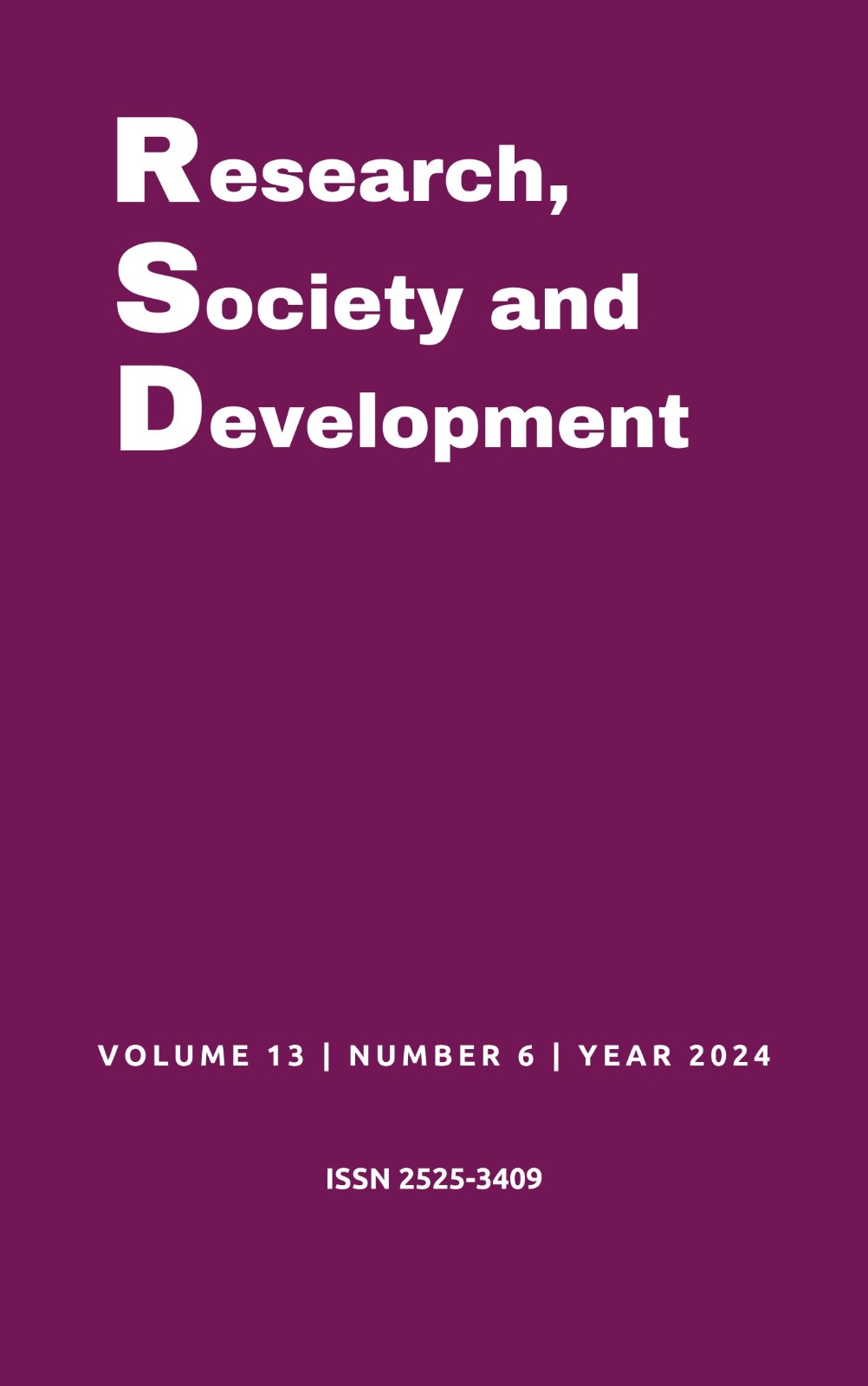Regulación y protección del consumidor: Exploración de la eficacia de las leyes y políticas de protección del consumidor en el contexto del sobreendeudamiento durante la pandemia
DOI:
https://doi.org/10.33448/rsd-v13i6.46092Palabras clave:
Sobreendeudamiento, Consumidor, Proteccion, Ley.Resumen
El foco principal de este artículo es la investigación del sobreendeudamiento en Brasil debido a la pandemia de COVID-19. La metodología utilizada para realizar este estudio es un estudio cualitativo, documental y reflexivo, que generó un impacto sustancial en la economía no sólo de Brasil, sino también del mundo, impactando directamente la situación financiera de las personas. En territorio brasileño, esta repercusión se manifestó a través de un aumento significativo de la deuda de los consumidores, resultado directo de las dificultades económicas impuestas por el escenario de pandemia y que llevaron a los consumidores a incumplir con las instituciones financieras. El sobreendeudamiento del consumidor es un fenómeno social y económico que se produce cuando un individuo, actuando de buena fe, acumula deudas hasta el punto de no poder pagarlas dentro de su capacidad económica, sin comprometer su mínimo existencial. Este concepto abarca no sólo las deudas presentes, sino también las futuras, excluyendo, no obstante, las contraídas con las autoridades tributarias. El sobreendeudamiento es un problema que afecta no sólo a los consumidores y sus familias, sino también a la economía en su conjunto, ya que reduce la capacidad de consumo y puede conducir a la exclusión del mercado crediticio, siendo un desafío complejo que requiere un enfoque multidisciplinario. educación, legislación y políticas públicas enfocadas a la protección del consumidor y la promoción de un crédito más responsable.
Referencias
Abrão, Nelson. Direito Bancário. (18th edição). Editora Saraiva, (2019).
Albuquerque, J. C. (2022). Superendividamento: responsabilidade do fornecedor na concessão do crédito. Revista FT. 26 (116). 10.5281/zenodo.7312080. https://revistaft.com.br/superendividamento-responsabilidade-do-fornecedor-na-concessao-do-credito/
Brasil. (2020). Senacon e SDNC assinam nota técnica a favor de PL que combate superendividamento. https://www.gov.br/mj/pt-br/assuntos/noticias/senacon-e-sdnc-assinam-nota-tecnica-a-favor-de-pl-que-combate-superendividamento
Brasil. (2021). Efeitos da Pandemia Covid-19 no cenário do superendividamento no Brasil. https://www.jusbrasil.com.br/artigos/efeitos-da-pandemia-covid-19-no-cenario-do-superendividamento-no-brasil/1333610127
Brasil. (2022). Especialistas discutem causas e formas de controlar o superendividamento. Superior Tribunal de Justiça (STJ). https://www.stj.jus.br/sites/portalp/Paginas/Comunicacao/Noticias/2022/21112022-Especialistas-discutem-causas-e-formas-de-controlar-o-superendividamento.aspx
Brasil. (2023). Quem deve, não teme! A conciliação como ferramenta para vencer o superendividamento. https://www.tjdft.jus.br/institucional/imprensa/campanhas-e-produtos/artigos-discursos-e-entrevistas/artigos/2023/quem-deve-nao-teme-a-conciliacao-como-ferramenta-para-vencer-o-superendividamento
Bolade, G. A. (2012). O superendividamento do consumidor como um problema jurídico-Social. ANIMA: Revista Eletrônica do Curso de Direito das Faculdades OPET. III (8), 180-209. ISSN 2175-7119. https://www.opet.com.br/faculdade/revistaanima/pdf/anima8/9-O-Superendividamento-do-Consumidor-como-um-ProblemaJuridico-Social.pdf
Bergstein, L. G. (2015). Crédito e superendividamento: As soluções no PL 3.515/15. https://www.migalhas.com.br/depeso/341983/credito-e-superendividamento-as-solucoes-no-pl-3-515-15
Cellard, A. A Análise Documental. In: POUPART, J. et al. (Orgs.). A pesquisa qualitativa: enfoques epistemológicos e metodológicos. Vozes, 2008. p. 295-316.
Creswell, J. W. Projeto de pesquisa: métodos qualitativo, quantitativo e misto. Artmed, 2007.
Costa, M. V. & Camozzato, V. C. (2010). Consumo e Consumismo: deslocamentos nas ressonâncias do Contemporâneo. Educação & Realidade. 35(3). https://seer.ufrgs.br/index.php/educacaoerealidade/article/view/12933
Joelsons, M.; Munhoz, N. (2021). Opinião Lei do Superendividamento e conceito de mínimo existencial. https://www.conjur.com.br/2021-out-20/opiniao-lei-superendividamento-conceito-minimo-existencial/
Marques, C. L., Lima, C. C. & Vial, S. (2020). Superendividamento dos consumidores no pós-pandemia e a necessária atualização do Código de Defesa do Consumidor. www.tjsp.jus.br. 108-44 https://www.tjsp.jus.br/download/EPM/Publicacoes/ObrasJuridicas/105-dc.pdf?.d=637581604679873754#:~ text=A%20superveni%C3%AAncia%20da%20pandemia%20mostrou,dimens%C3%A3o%20%C3%A9tico%2Dinclusiva%20e%20solidarista42.
Peic (2023). https://www.fecomercio.com.br/pesquisas/indice/peic
Prieto, T. (2022). Efeitos da Pandemia Covid-19 no cenário do superendividamento no Brasil. Website Jus Brasil. https://www.jusbrasil.com.br/artigos/efeitos-da-pandemia-covid-19-no-cenario-do-superendividamento-no-brasil/1333.
Pereira, A. R. (2023). Mínimo Existencial: como é aplicado no direito brasileiro. Portal Aurum. https://www.aurum.com.br/blog/minimo-existencial/
Train, E. T. S., Moreira, T. M. B., Pinto, R. S. & Robles, M. F. S. (2023). O superendividamento do consumidor - à luz da lei 14.181/2021. Revista Multidisciplinar do Uni Santa Cruz, Curitiba. 1 (3), 584-606. 10.55905/rmuscv1n3-005. h https://periodicos.unisantacruz.edu.br/index.php/revmulti/article/view/337/324
.
Descargas
Publicado
Número
Sección
Licencia
Derechos de autor 2024 Larissa Rodrigues Bezerra; Mainardo Filho Paes da Silva; Samira dos Santos Machado

Esta obra está bajo una licencia internacional Creative Commons Atribución 4.0.
Los autores que publican en esta revista concuerdan con los siguientes términos:
1) Los autores mantienen los derechos de autor y conceden a la revista el derecho de primera publicación, con el trabajo simultáneamente licenciado bajo la Licencia Creative Commons Attribution que permite el compartir el trabajo con reconocimiento de la autoría y publicación inicial en esta revista.
2) Los autores tienen autorización para asumir contratos adicionales por separado, para distribución no exclusiva de la versión del trabajo publicada en esta revista (por ejemplo, publicar en repositorio institucional o como capítulo de libro), con reconocimiento de autoría y publicación inicial en esta revista.
3) Los autores tienen permiso y son estimulados a publicar y distribuir su trabajo en línea (por ejemplo, en repositorios institucionales o en su página personal) a cualquier punto antes o durante el proceso editorial, ya que esto puede generar cambios productivos, así como aumentar el impacto y la cita del trabajo publicado.


